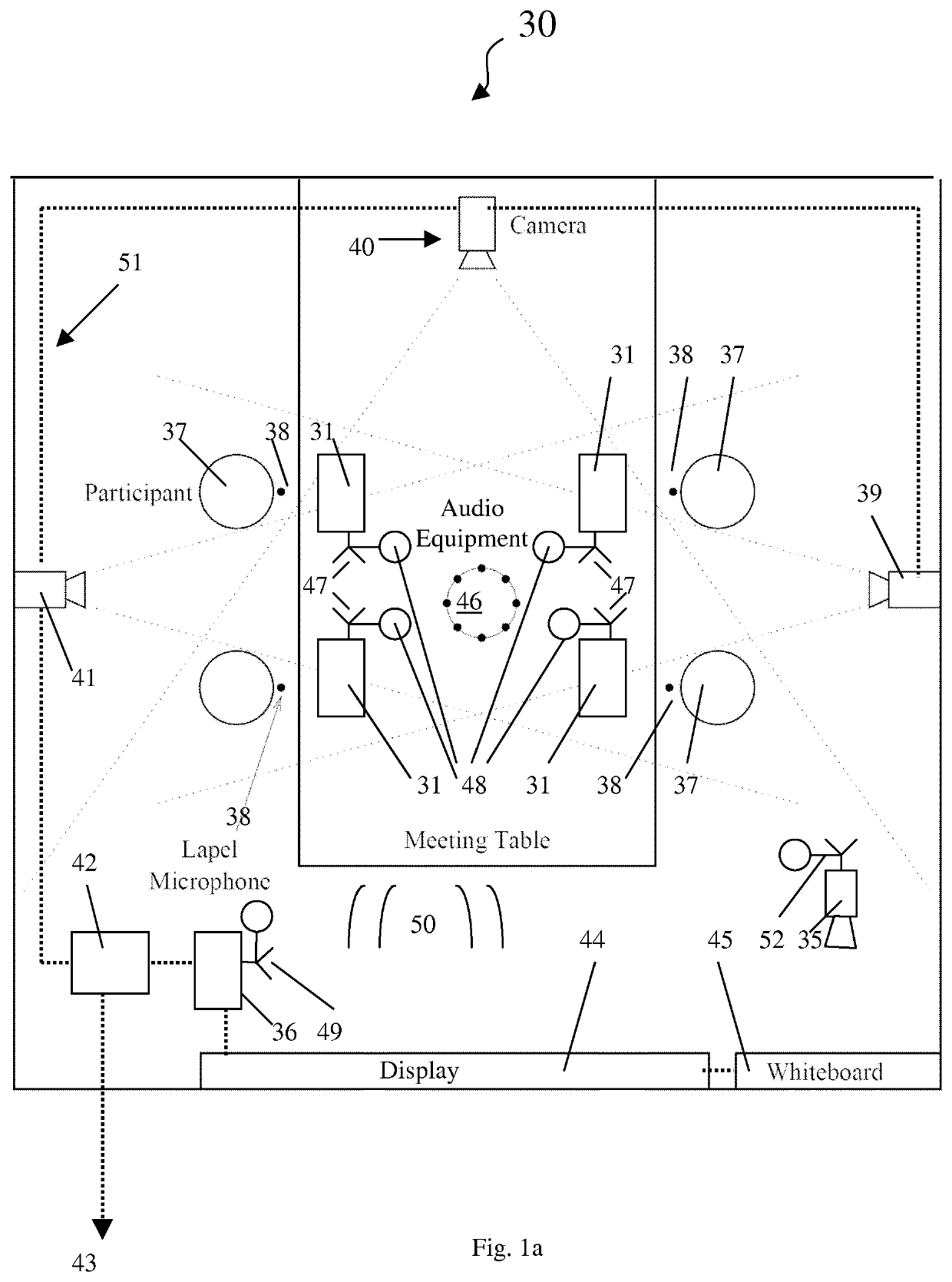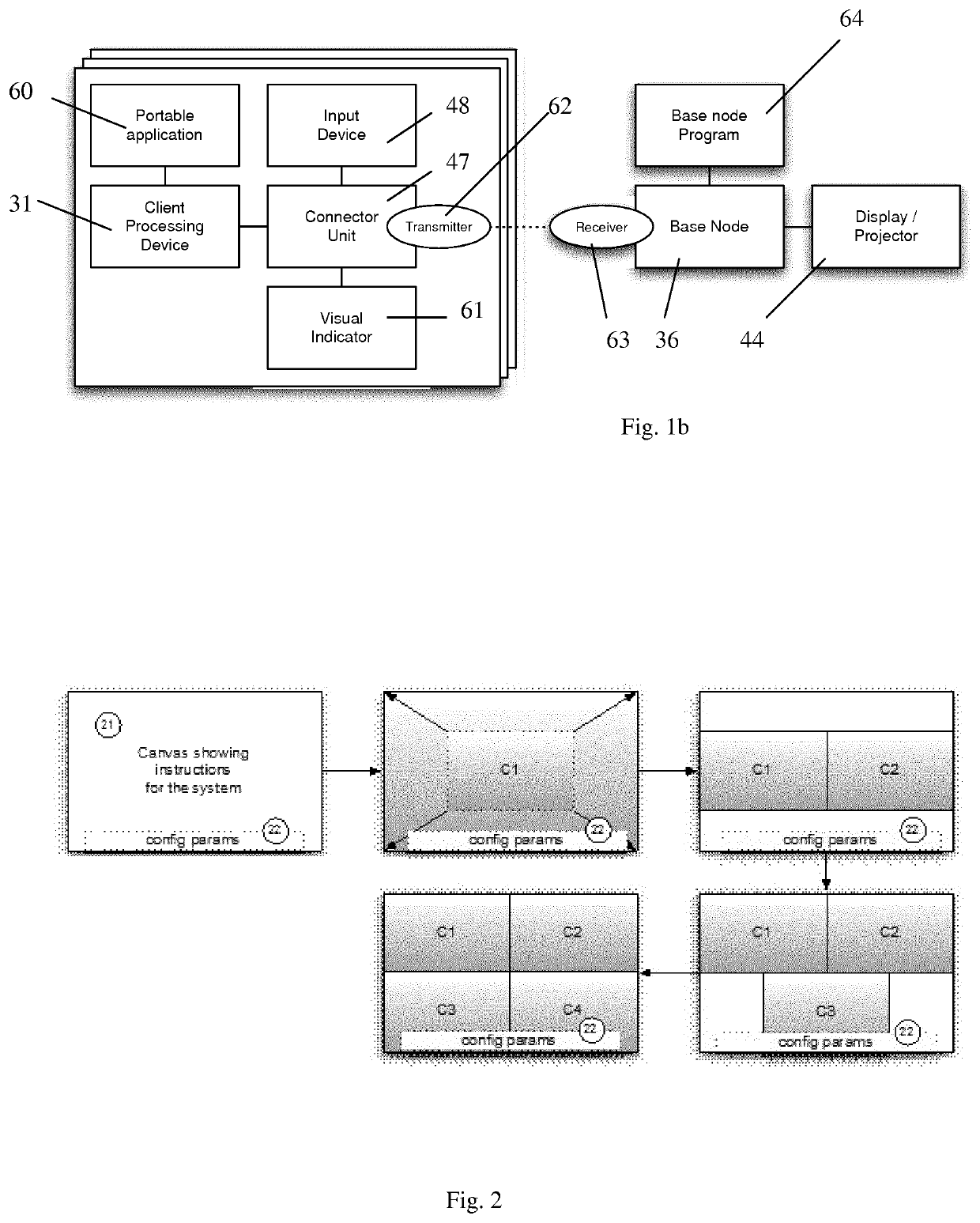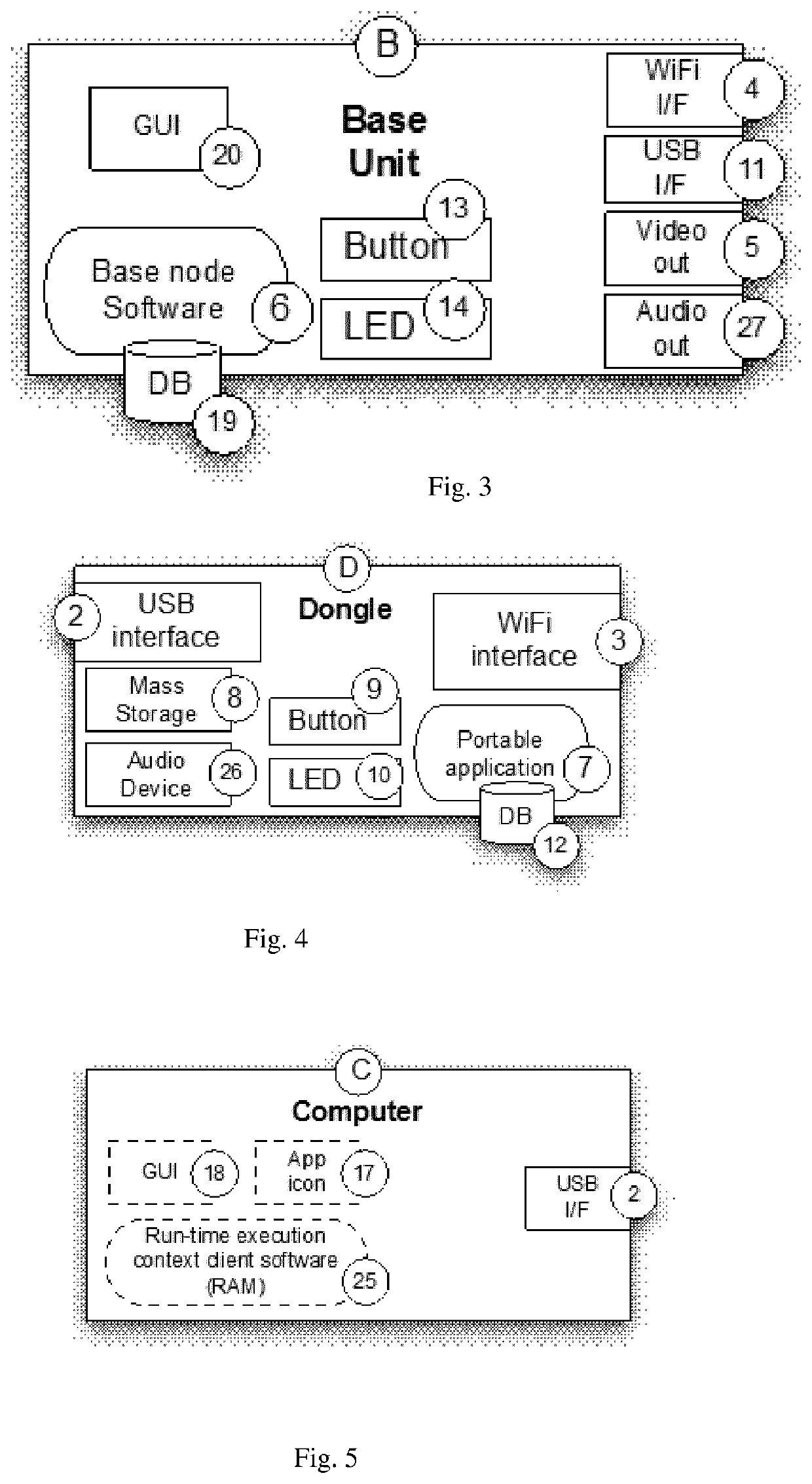Electronic tool and methods for meetings
- Summary
- Abstract
- Description
- Claims
- Application Information
AI Technical Summary
Benefits of technology
Problems solved by technology
Method used
Image
Examples
first embodiment
[0117]FIG. 1a is a schematic representation of a generic meeting room 30 with a meeting table that can be used with embodiments of the present invention. Participants 37 having some form of processing device 31 such as a laptop computer, a tablet, a PDA etc. Each of the processing devices 31 can be a host device and has a first connection unit 47 to which it is coupled. The first connection unit 47 provides access to a network 50 which in this case is a wireless network, but could be a wired network. The network can be a shared resource network. Each connection unit 47 may be coupled to an input device 48 which will be described in more detail later. A user 37 will typically at a distance from the processing device 37 which is ergonomically satisfactory. This ergonomic boundary is typically an area of about 1000 sq cm to 4000 sq cm. This ergonomic boundary will typically have the user as one side of the boundary and the comfortable reach of the arms will determine an area on the lef...
second embodiment
[0207]In the second embodiment, referring to FIGS. 2 to 5, the base node is a separate physical processing device called base unit (B), comprising permanent storage, memory, a processing engine, a wireless access point (4), a plug and play interface such as a USB port (11), a graphics display output adapter (5) like VGA / DP / DVI / HDMI, and optionally an audio output adapter (27). An input device having an actuator such as a button 13 and a visual indicator 14 are optional.
[0208]The connection unit is a physical device in the form of an external peripheral device (shown in the drawings as a “dangle”0) comprising permanent storage storing the portable application (7) and configuration parameters (12), memory, a processing engine (e.g. CPU, FPGA), a wireless transmitter such as WiFi (3) or other wireless transmitters such as LiFi, a plug and play interface such as a USB interface (2), a button as input device (9), an LED ring as visual indicator (10). The portable application is stored on...
third embodiment
[0227]Portable application stored on standard solid state memory such as a USB stick.
[0228]In the third embodiment, the portable application is stored on a solid state memory such as a regular USB memory stick (FIG. 7).
[0229]With a solid state memory such as a regular USB memory stick, there is no input device, visual indicator or transmitter of the kinds described above for the connection unit. This means that the system needs to:[0230]Use the transmitter / receiver from the client processing device.[0231]Use as input device a key or button on the client processing device like a physical key on the keyboard, a special mouse press, a button area on a touch screen, a button displayed on the screen to be clicked on with a mouse pointer.[0232]Present the visual indicator on the client processing device's display.
[0233]The client processing device then looks like FIG. 8.
[0234]This embodiment provides a peripheral interface such as the USB interface on any processing device acting as a hos...
PUM
 Login to View More
Login to View More Abstract
Description
Claims
Application Information
 Login to View More
Login to View More - R&D
- Intellectual Property
- Life Sciences
- Materials
- Tech Scout
- Unparalleled Data Quality
- Higher Quality Content
- 60% Fewer Hallucinations
Browse by: Latest US Patents, China's latest patents, Technical Efficacy Thesaurus, Application Domain, Technology Topic, Popular Technical Reports.
© 2025 PatSnap. All rights reserved.Legal|Privacy policy|Modern Slavery Act Transparency Statement|Sitemap|About US| Contact US: help@patsnap.com



